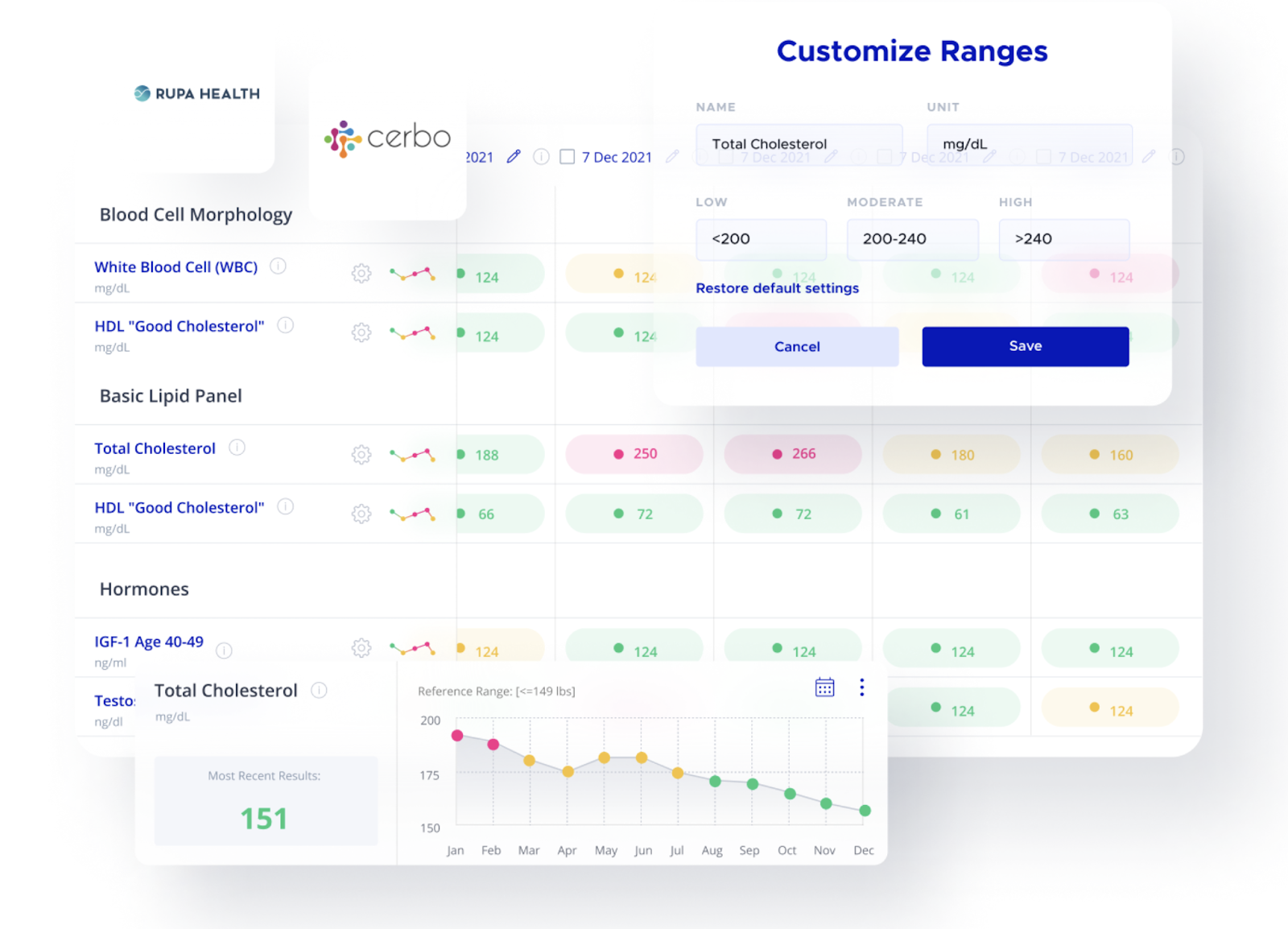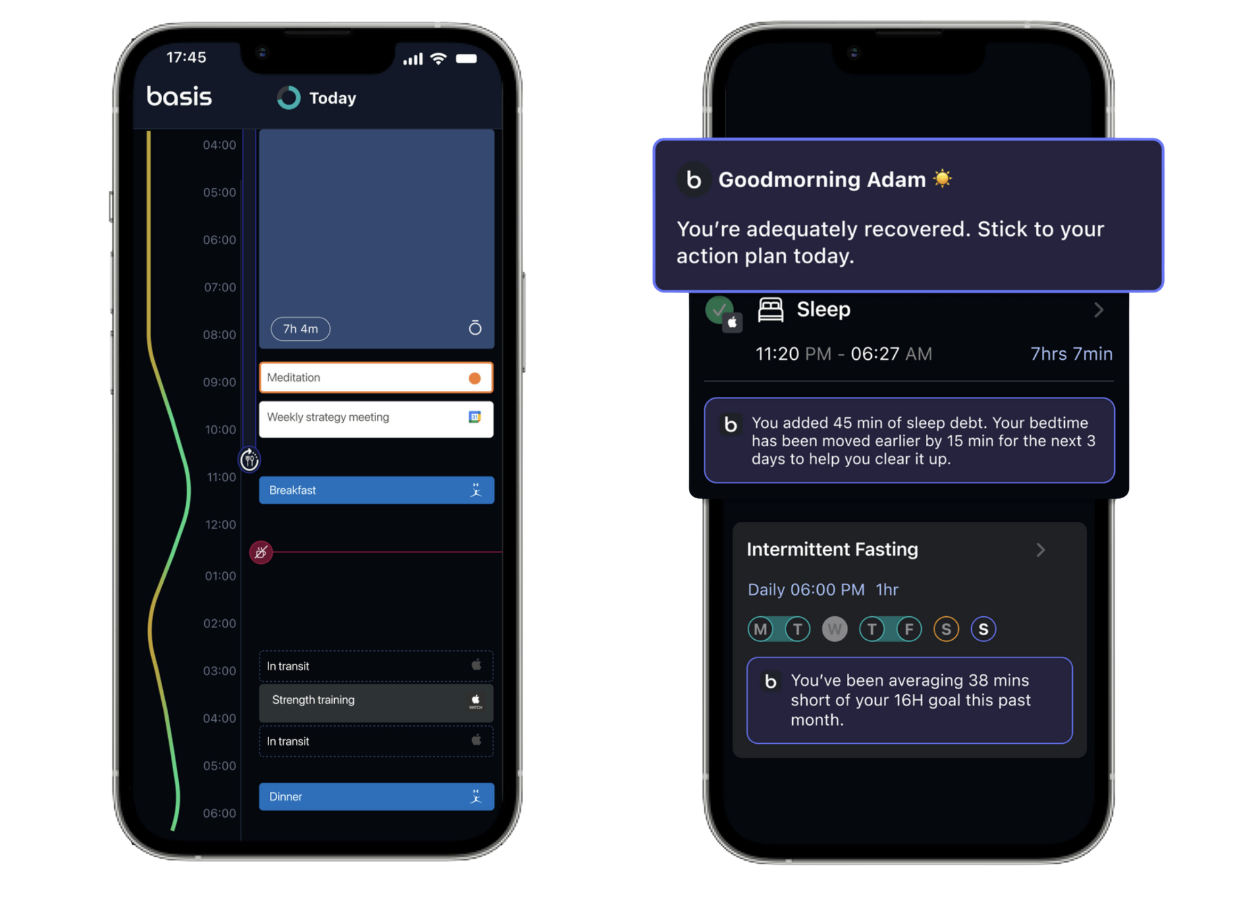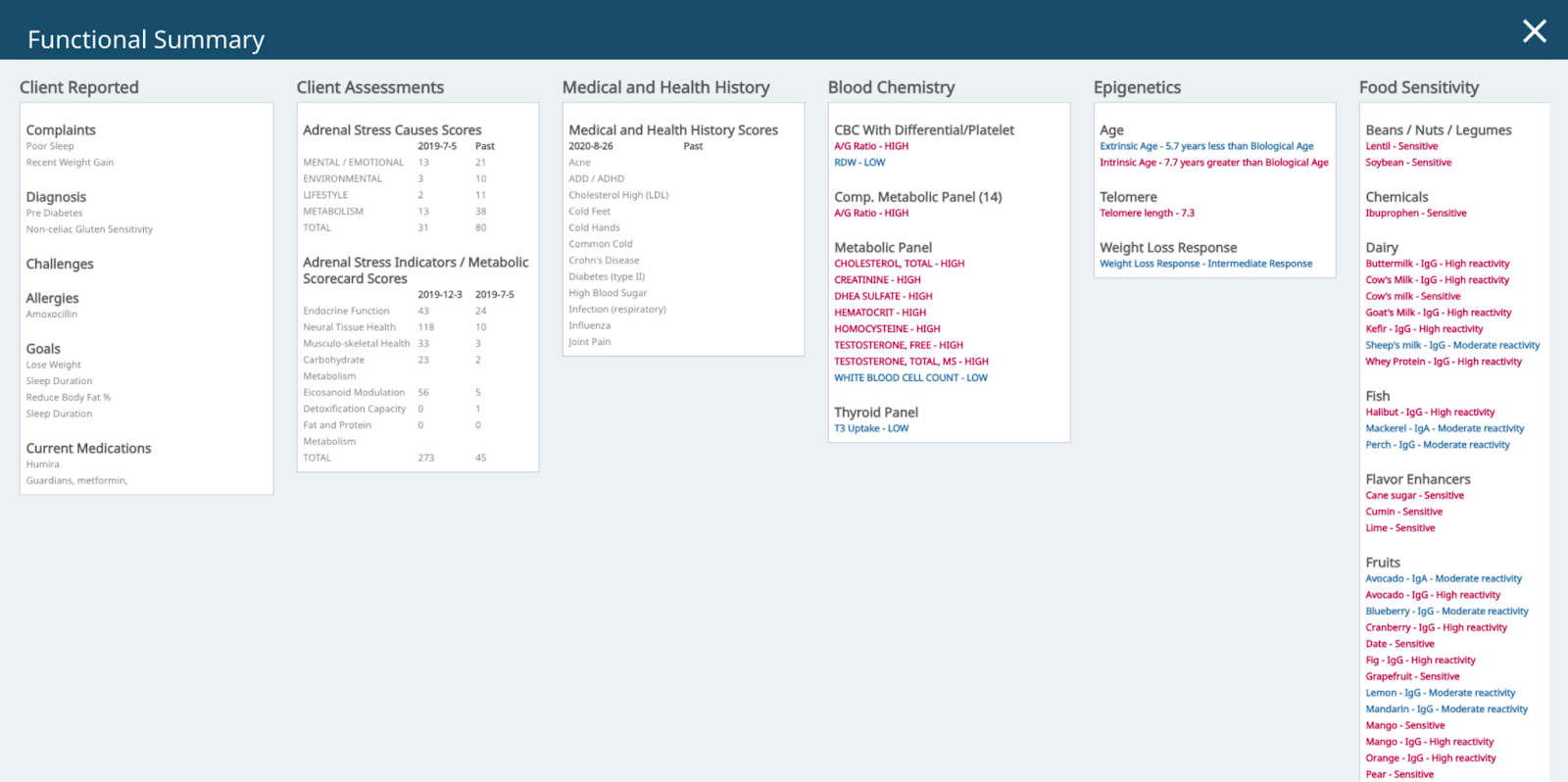The Top Health Data Platforms for Concierge and Longevity Medicine
IBM Watson once promised to outdiagnose doctors. Flatiron vowed to transform oncology with clear, structured, real-world evidence. Both made headlines and ran into the same wall: poor-quality data. It didn’t matter how powerful the algorithms were if the inputs were fragmented, unverified, or missing entirely.
We’re now told generative AI will fix what came before: auto-generated chart notes, smart summaries, and predictive prompts flood the market. But generative AI doesn’t fix insufficient data. It makes it look better. If the underlying information is incomplete or biased, you get faster, more convincing output that’s still fundamentally wrong.
That’s a dangerous problem for any healthcare setting, especially for concierge and longevity medicine, where the data is non-traditional when talking about Dexcom CGMs, epigenetic clocks, sleep scores, microbiome panels, nutraceutical logs, full-body MRIs, and voice-note symptom diaries.
Much of this data is self-reported, app-generated, or outside structured clinical systems entirely. And no two patients or providers track things the same way.
For practices focused on optimizing healthspan instead of reacting to illness, the challenge is to store this data, making it usable, accurate, and aligned across teams.
The cracks in the health data infrastructure didn’t go unnoticed. In the last five years, dozens of startups have rushed in, each offering their take on dashboards, integrations, and
AI-assisted insights. A few get impressively close to solving key pieces of the puzzle. But most fall short where it matters: aligning with how real practices operate.
There’s a reason for that. Concierge and longevity practices from around the world don’t follow a standard model. Some run like lean startups; others resemble research labs with white-glove care teams.
That level of variability makes it impossible to design a universal platform. Instead, you need to find a tool that fits your model and know where it breaks.
Read on to discover three instruments concierge healthcare companies and longevity health clinics should add to their shortlist.
Heads Up

Heads Up is an integrative health data analytics platform designed for clinics that need to centralize and interpret large volumes of data from wearables, labs, CGMs, and lifestyle trackers for better outcomes and happier patient experiences. It solves the problem of fragmented, hard-to-use data by standardizing inputs into clean, actionable dashboards for both individual and population-level insight.
Features and benefits
- Integrates with Oura, Apple Health, Dexcom, Garmin, LabCorp, and functional labs.
- Normalizes diverse data sources into unified dashboards for patients and cohorts.
- Enables real-time alerts, trend tracking, and population health analytics.
- White-labeled dashboards can be shared with patients and health coaches.
- Filtering tools allow teams to view data by biomarker, intervention, or behavior.
Limitations
- Implementation requires time: integrations, dashboard setup, and staff training.
- Not suitable for clinics without an existing data strategy or clean input sources.
- No built-in EHR, communication tools, or CRM must be paired with other systems.
Best fit for
- Concierge medicine and longevity practices offering remote or hybrid care that rely on continuous tracking and measurable outcomes.
- Functional and metabolic health practices that need real-time biomarker visibility.
- Growth-stage operations looking to demonstrate program effectiveness at both the patient and cohort level.
HeadsUp will soon integrate with Profi.io, bridging the gap between data tracking and clinical workflow. Health and lifestyle data from wearables will be fed directly into the Profi.io dashboard, providing concierge doctors and longevity medicine doctors with real-time visibility without the need to switch platforms.
Basis Health

Basis is a care enablement platform with a built-in AI engine, Selia, designed for high-volume clinics that need operational infrastructure. It automates protocols, patient communication, and onboarding, and provides a full stack: a backend for the clinical team and a frontend for the patient.
Features and benefits
- Selia AI handles repetitive operational tasks, reducing manual workload.
- Data integration from multiple sources (wearables, specialty labs, etc.) is processed and mapped into structured protocols.
- Programmable care protocols with branching logic, task triggers, and messaging flows that adapt in real time.
- The protocol marketplace offers pre-built clinical flows and content modules that can be customized and reused.
- Developed in partnership with clinics, all the features are tested in real operational settings.
Limitations
- No native billing or membership features are available; external tools may be required.
- Requires well-structured operations to operate efficiently.
Best fit for
- Longevity care clinics offering protocol-based services (e.g., metabolic programs, hormone therapy) that rely on lab data, wearables, and continuous input.
- Growth-oriented online concierge medicine clinics looking to scale services, implement team-based care, or run group and remote programs.
- Multi-site or multidisciplinary practices aiming to standardize workflows and clinical delivery.
Biocanic

Biocanic is a workflow infrastructure platform built for functional medicine and health coaching practices that run structured programs with recurring touchpoints. It solves the operational challenge of scaling personalized care without increasing staff by turning symptom intake, client onboarding, and protocol delivery into automated, repeatable flows.
Features and benefits
- Custom intake engine for building symptom surveys, check-ins, and forms that feed directly into client records.
- Automation logic to trigger follow-ups, assign protocols, recommend supplements, or order labs, based on form responses.
- Integrations with 200+ tools, including Rupa Health, Fullscript, wearable platforms, and CRMs.
- Program templates for gut health, detox, and hormone balancing that can be tailored and reused.
Limitations
- Not suited for advanced diagnostics, longevity modeling, or deep biomarker analysis.
- Lacks built-in data visualization or research-grade analytics.
- Better for structured care journeys than for unstructured, exploratory consultations.
Best fit for
- Functional medicine practices offering programmatic care (e.g., gut healing, hormone balance, detox).
- Health coaches running group programs or launching scalable digital offerings.
- Small clinics seeking an automation layer to coordinate client journeys without expanding the team.
Related: Profi.io vs. Biocanic: A Strategic Comparison for Scalable, Integrated Care Delivery
How to Choose A Suitable Concierge and Longevity App?
Choosing a health data platform is a systems decision. A clinic running one-on-one gut health protocols needs configurable workflows, fast onboarding, and patient-friendly intake processes. Conversely, a network focused on long-term risk stratification requires clean, normalized data and scalable analytics, rather than drag-and-drop protocol builders.
This mismatch is where most platforms fail operationally. That’s why the core question isn’t “What can it do?” but “What is it designed to do, and does that match how we deliver care?”
When platform capabilities align with your clinical model (how data is captured, how care is delivered, how outcomes are tracked), tech starts driving leverage.
Category
Tags

Generate more profit for your service practice
Without investing any more time. You've been helping others — it's time to help yourself



.webp)

.webp)
.webp)